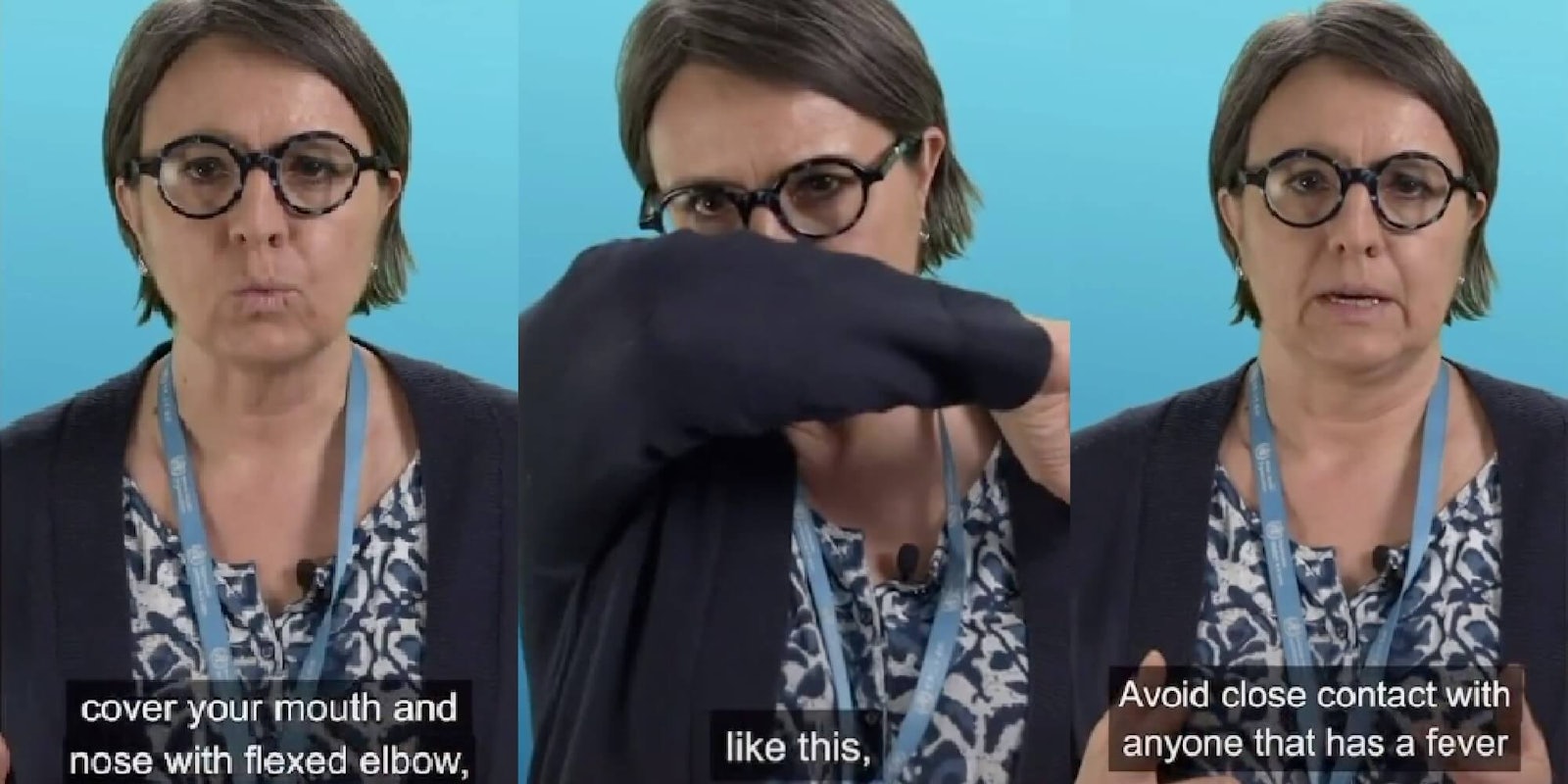The World Health Organization (WHO) joined TikTok in an effort to push back against misinformation about the coronavirus outbreak.
The Switzerland-based agency, run by the United Nations (UN), posted its first video on Friday aimed at teaching viewers how to protect themselves.
“We are joining TikTok to provide you with reliable and timely public health advice,” the video’s description states.
Benedetta Allegranzi, technical lead of infection prevention and control for the WHO, explains the best methods for staying safe: washing your hands frequently, covering your mouth when sneezing or coughing if a tissue isn’t available, and avoiding contact with anyone who either has a cough or fever.
The WHO is hoping to reduce the spread of false information on the platform by providing users with accurate and up-to-date data.
The coronavirus outbreak has led to a flurry of misinformation and conspiracies on social media sites, where some users have even purposely put out incorrect information in order to get views.
In response, services such as Facebook, Instagram, and Twitter now present users who search for content related to the coronavirus links to the Centers for Disease Control and Prevention’s (CDC) website.
The latest numbers indicate that there have been 84,125 confirmed cases of the disease across the globe. At least 2,868 individuals have died as a result.
Although the U.S. has only seen 62 confirmed cases of the coronavirus thus far, health officials warn that it’s only a matter of time before the disease becomes a global pandemic.
“Current global circumstances suggest it’s likely this virus will cause a pandemic,” said Anne Schuchat, principal deputy director of the CDC.
Concerns over the coronavirus have led to significant dips in the stock market and a global shortage of face masks.
READ MORE:
- Mike Huckabee’s defense of Trump’s coronavirus response will make you nauseous
- Alissa Violet is in Italy—and fans are worried she’ll get coronavirus
- Mike Pence, who fueled HIV outbreak, is now in charge of coronavirus outbreak
H/T The Verge
